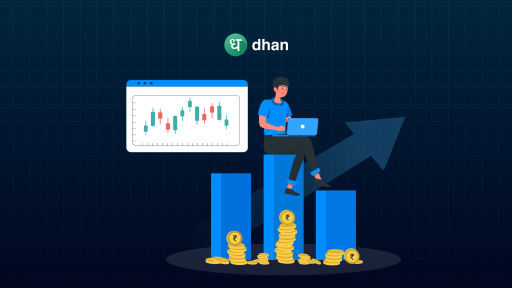Futures and stocks are two popular types of financial assets. While both futures and stocks come with risks, futures usually carry higher risks than stocks. Both can help you earn returns, but they work differently.
So, when it comes to futures vs. stocks, should you focus on just one? To make it clearer, let’s explore the key differences between futures and stocks and help you decide which might be the right fit for you.
What are Stocks?
When an investor buys shares of stock, they acquire partial ownership of a company. The ownership percentage is based on the total number of shares the company has issued. For instance, purchasing 1,000 shares in a company with 1 million outstanding shares gives the investor a 0.1% ownership stake.
Shareholders gain voting rights on certain company matters and can attend annual shareholder meetings. These shares represent a claim on the company’s assets and future earnings, often expressed on a per-share basis.
On top of that, some companies distribute a portion of their profits to shareholders through quarterly or annual dividends.
What are Futures?
In trading, Futures are agreements to buy or sell an asset at a predetermined price on a specific future date. They are a derivative instrument that has exposure to underlying assets such as commodities, stocks, etc.
Futures Contracts require fulfilling the agreement regardless of the asset’s future value, though they may include a “margin”—a collateral down payment.
This means a trader has to execute the trade regardless of profit or loss. This makes futures a risky instrument.
Key Differences Between Futures and Stocks
If you’re planning to trade, it’s important to understand the difference between stocks and futures. Here’s a comparison table that outlines the key distinctions between these two in the Indian market:
| Stocks | Futures | |
| Ownership | Buying stocks gives you ownership in a company (equity share). | Futures are contracts with exposure to an underlying asset; you do not own the underlying asset. |
| Duration | No fixed duration; you can hold stocks indefinitely. | Contracts have fixed expiration dates (monthly/quarterly). |
| Leverage | No leverage; you pay the full price of shares upfront. | High leverage; you pay a margin (fraction of contract value). |
| Risk | Limited to the investment/trade amount; losses stop at zero value. | High risk; losses can exceed the margin amount. |
| Purpose | Ideal for long-term wealth creation or dividends. | Used for hedging or short-term speculation. |
| Liquidity | Stocks are highly liquid, especially large-cap companies. | Futures liquidity depends on the contract (index > stocks). |
| Regulations | Directly regulated by SEBI for company disclosures. | Futures are standardized by the exchange (e.g., NSE, BSE). |
| Trading Hours | Normal equity market hours (9:15 AM to 3:30 PM). | Same as the stock market but includes extended sessions for F&O. |
| Costs | Involves brokerage, STT, and DP charges. | Includes brokerage, STT, and margin maintenance costs. |
Which Is Right for You? Stocks or Futures?
Choosing between stocks and futures depends on your goals and risk tolerance. Stocks represent ownership in a company, suitable for long-term growth and potential dividends. For example, buying shares in a tech company allows you to benefit from its success over time.
Futures are contracts to buy or sell underlying assets at a set price on a future date, often used for short-term speculation or hedging. They can be riskier due to leverage, meaning you could lose more than your initial investment.
Conclusion
Futures and stocks are important tools for investors with different goals. Stocks help build long-term wealth, while futures are great for trading and hedging.
Choosing the right option depends on your goals, risk level, and market skills. Both have benefits and risks, so knowing their features is key.
To further understand these concepts better, check out these blogs:




